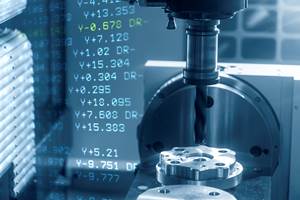Different Company Types Have Different CNC Needs
A company’s CNC needs can vary depending on what it produces.
Share







Hwacheon Machinery America, Inc.
Featured Content
View More
Takumi USA
Featured Content
View MoreMany companies have only one kind of CNC machine tool, and they specialize in the processes that this type of machine can perform. For example, the company might specialize in turning processes performed by sliding-headstock CNC lathes. They also tend to specialize in running small lots—giving them much in common with prototype-producing companies. For these reasons, workpiece-producing companies need to be very good at the processes in which they specialize. This narrow focus is often the very factor that enables them to outperform product-producing companies and make a profit producing workpieces those companies farm out.
Related Content
The Best Point of Reference for Program Zero Assignment Entries
Correctly specified program zero assignment and coordinate position values enable the CNC to determine how far to move the cutting tool during each positioning motion.
Read MoreA Higbee Thread Milling Custom Macro
Higbee threads provide a full thread form at the very start of the thread. The sharp edge is removed during the machining process.
Read More3 Mistakes That Cause CNC Programs to Fail
Despite enhancements to manufacturing technology, there are still issues today that can cause programs to fail. These failures can cause lost time, scrapped parts, damaged machines and even injured operators.
Read MoreTips for Designing CNC Programs That Help Operators
The way a G-code program is formatted directly affects the productivity of the CNC people who use them. Design CNC programs that make CNC setup people and operators’ jobs easier.
Read MoreRead Next
Registration Now Open for the Precision Machining Technology Show (PMTS) 2025
The precision machining industry’s premier event returns to Cleveland, OH, April 1-3.
Read More5 Rules of Thumb for Buying CNC Machine Tools
Use these tips to carefully plan your machine tool purchases and to avoid regretting your decision later.
Read MoreBuilding Out a Foundation for Student Machinists
Autodesk and Haas have teamed up to produce an introductory course for students that covers the basics of CAD, CAM and CNC while providing them with a portfolio part.
Read More
.jpg;width=70;height=70;mode=crop)




























.jpg;maxWidth=300;quality=90)
















